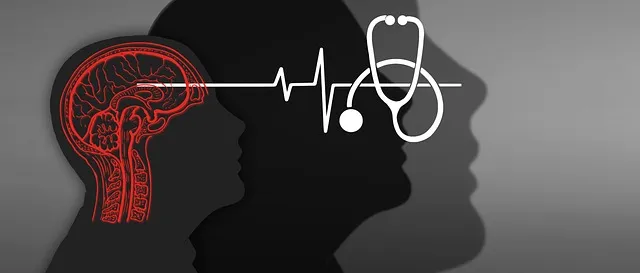The Littleton Kaiser Permanente mental health center enhances services through targeted community outreach programs during visiting hours. Workshops and strategies focus on improving mental wellness, such as social skills training and self-esteem improvement, catering to diverse age groups and backgrounds. This holistic approach fosters trust, increases accessibility, and positively impacts both individuals and the community by addressing local challenges. Strategic planning, risk management, and tailored initiatives ensure the effectiveness of outreach programs over time, utilizing visiting hours as a key tool for measuring success and refining services based on feedback and long-term impact assessments.
Community outreach programs play a vital role in expanding access to mental health services, particularly in underserved areas. This article explores this critical initiative, using the Littleton Kaiser Permanente Mental Health Center as a case study. We delve into effective planning strategies, emphasize building community trust and partnerships, and discuss measuring success through impact evaluation. Discover how programs like these, including visits during specific hours at the mentioned center, can revolutionize mental healthcare accessibility.
- Understanding Community Outreach: A Vital Role for Mental Health Centers
- Littleton Kaiser Permanente Mental Health Center: A Case Study
- Planning Effective Outreach Programs: Strategies and Considerations
- Engaging the Community: Building Trust and Partnerships
- Measuring Success: Evaluating the Impact of Community Outreach Programs
Understanding Community Outreach: A Vital Role for Mental Health Centers

Community outreach programs play a vital role for mental health centers like the Littleton Kaiser Permanente location, extending their services beyond traditional walls. By implementing these initiatives, mental health professionals can actively engage with communities they serve, fostering better understanding and accessibility to care. This is particularly crucial in addressing the unique needs of diverse populations within the region, such as those during visiting hours at Littleton Kaiser Permanente mental health center.
These programs often include activities like Social Skills Training workshops designed to enhance communication and interaction, contributing to improved mental wellness. Additionally, outreach efforts can target individuals seeking Self-Esteem Improvement strategies, empowering them with tools to navigate life challenges more effectively. Through such initiatives, mental health centers become integral parts of the communities they serve, creating a network of support that resonates on a deeper level.
Littleton Kaiser Permanente Mental Health Center: A Case Study

The Littleton Kaiser Permanente Mental Health Center stands as a shining example of how community outreach programs can make a significant impact. With its visiting hours designed to foster open communication and accessibility, this facility has successfully bridged the gap between mental health services and the community it serves. The center’s approach focuses on not just treating symptoms but also on risk management planning for mental health professionals, ensuring a safe and supportive environment.
Through various initiatives, Littleton Kaiser Permanente encourages inner strength development and confidence boosting among its patients. By offering regular programs that cater to different age groups and backgrounds, the center promotes mental well-being and provides a platform for individuals to share their experiences. This holistic strategy has led to improved patient outcomes and fostered a sense of community, demonstrating the power of outreach in transforming mental health care.
Planning Effective Outreach Programs: Strategies and Considerations

Effective community outreach programs require meticulous planning to ensure they achieve their intended goals. The first step is to understand the needs of the target population, which involves conducting thorough research and assessing the local community’s unique challenges. For instance, a mental health center like Littleton Kaiser Permanente might focus on increasing awareness about mood management techniques during visiting hours, tailoring sessions for specific age groups or demographics. This strategic approach helps in creating relevant and impactful programs.
Additionally, integrating risk management planning is vital to ensure the safety and well-being of both participants and mental health professionals. Considering potential risks and implementing mitigation strategies ensures a smooth execution of the Community Outreach Program Implementation. Regular evaluation and adaptation based on feedback are key to refining these initiatives over time, ensuring they remain effective and aligned with the evolving needs of the community.
Engaging the Community: Building Trust and Partnerships

Engaging communities is a cornerstone of successful outreach programs, especially when addressing mental health concerns. Building trust and fostering partnerships with local organizations in areas like Littleton, where the Kaiser Permanente mental health center operates, is vital. By understanding the unique needs and challenges of the community, mental health professionals can tailor their services effectively. This involves active listening to residents’ concerns and collaborating with local leaders and initiatives.
One approach that has gained traction is the implementation of Compassion Cultivation Practices, which focus on enhancing emotional resilience and coping skills among community members. These practices align with the broader goal of Mental Health First Aid, encouraging a supportive environment where individuals can openly discuss their struggles and access available resources during visiting hours at local health centers. Furthermore, integrating risk assessment tools for mental health professionals ensures that support is provided safely and effectively, fostering long-lasting partnerships based on mutual understanding and care.
Measuring Success: Evaluating the Impact of Community Outreach Programs

Measuring the success of community outreach programs is vital to understanding their impact and identifying areas for improvement. At the Littleton Kaiser Permanente mental health center, visiting hours are a strategic tool to assess engagement and satisfaction. By tracking the number of participants and their demographics, the center can gauge the program’s reach and tailor services accordingly. Moreover, evaluating feedback through surveys or focus groups provides insights into the perceived benefits and challenges, ensuring the outreach aligns with the community’s needs.
In addition to these methods, assessing the long-term impact involves examining outcomes related to mental health awareness and access to care. For instance, a Risk Assessment for Mental Health Professionals can help identify communities with elevated risk factors, prompting targeted interventions. Implementation of Self-Awareness Exercises and Trauma Support Services should be monitored to ensure they meet participants’ unique requirements, fostering a sense of community and improved well-being.
Community outreach programs, as exemplified by the successful initiatives at the Littleton Kaiser Permanente Mental Health Center, play a pivotal role in enhancing mental well-being. By understanding the community’s unique needs and collaborating with local partners, mental health centers can foster trust and improve access to care. Planning these programs requires careful consideration of cultural sensitivity, tailored strategies, and measurable outcomes. The case study from Littleton highlights how such initiatives not only reach underserved populations but also lead to lasting positive impacts on individual lives and the community at large. Regular evaluation ensures that outreach efforts remain effective and adaptable to changing needs, making them a valuable asset for modern mental health centers, including during extended visiting hours at facilities like Littleton Kaiser Permanente.






